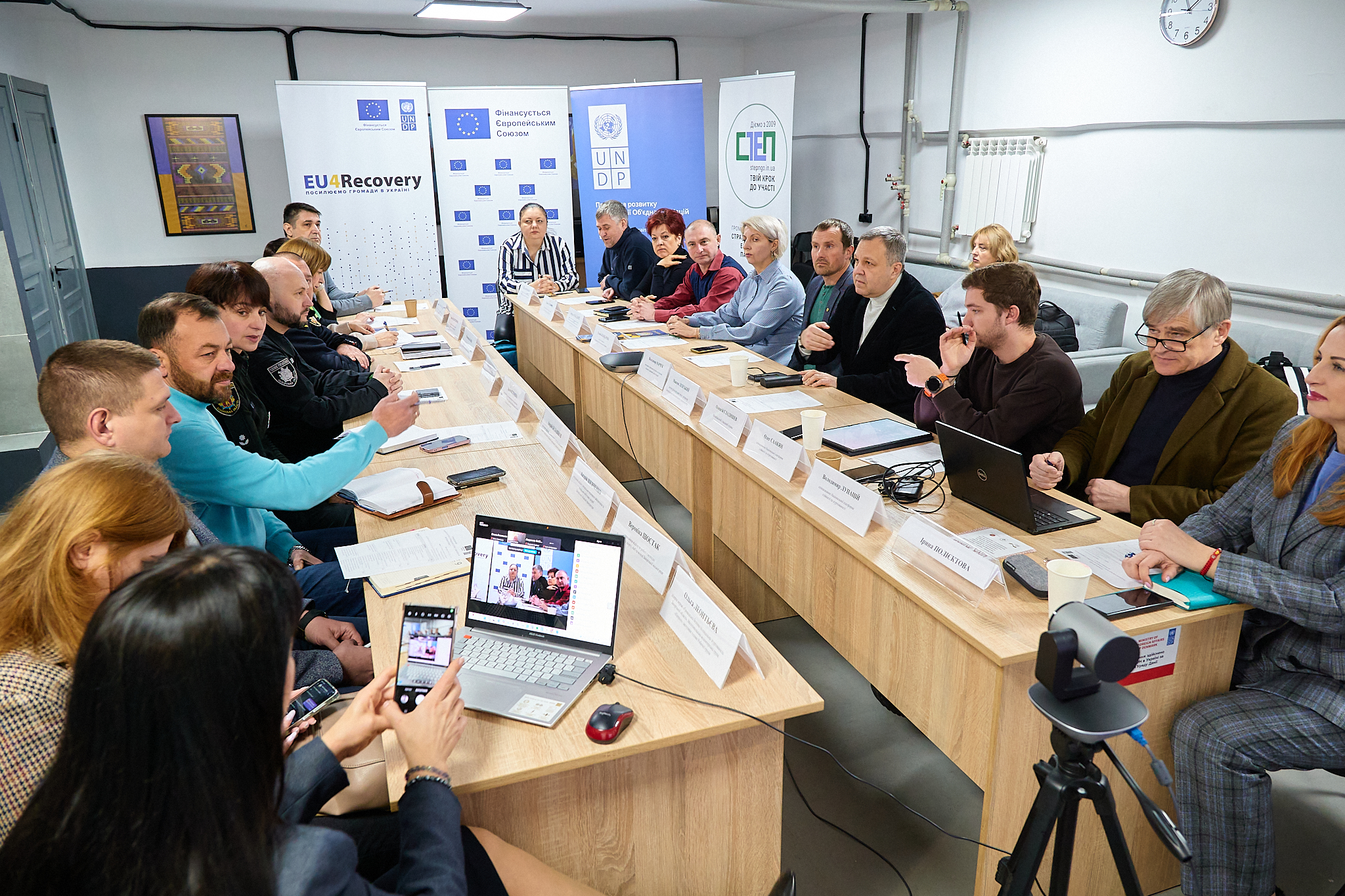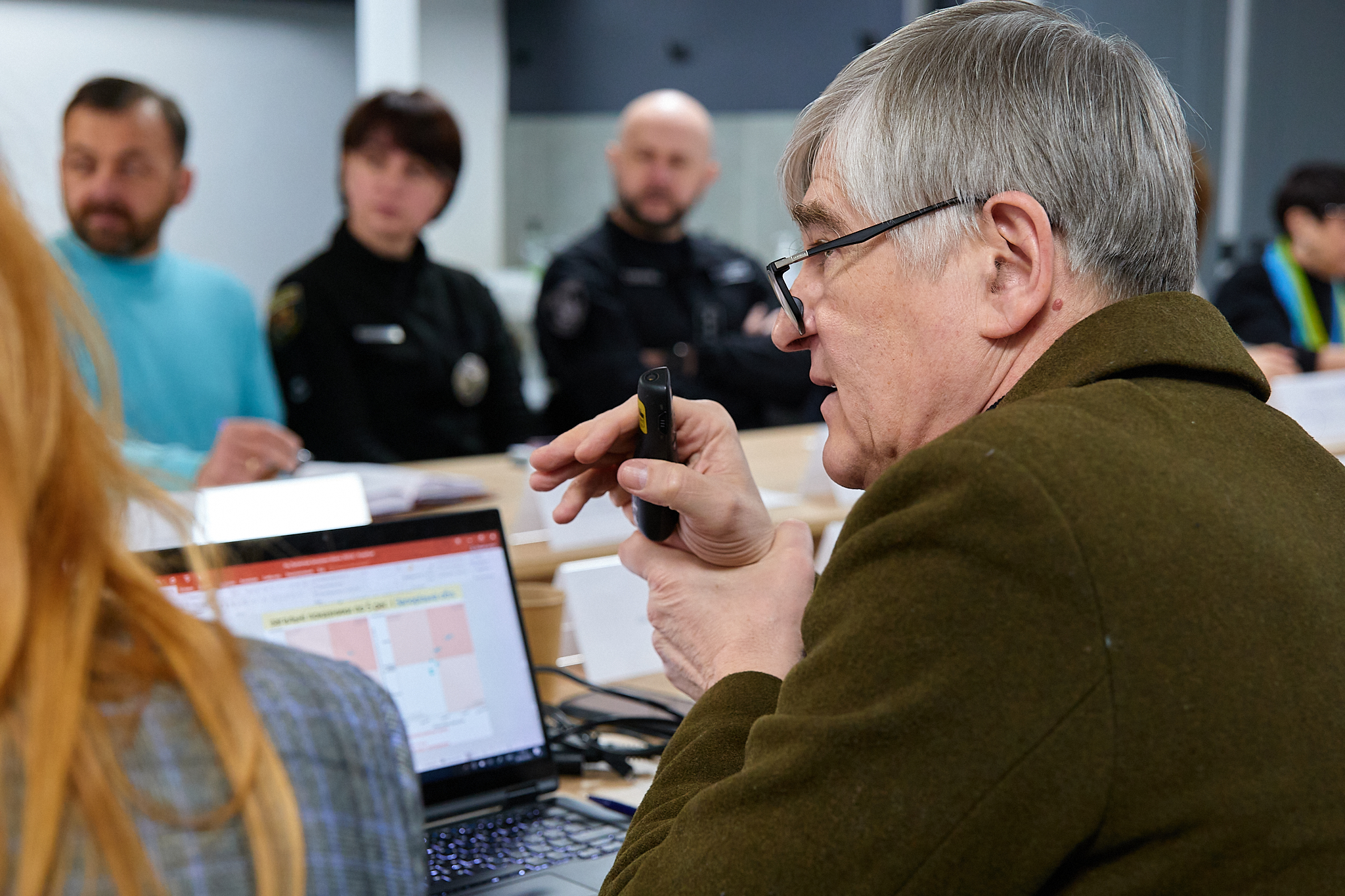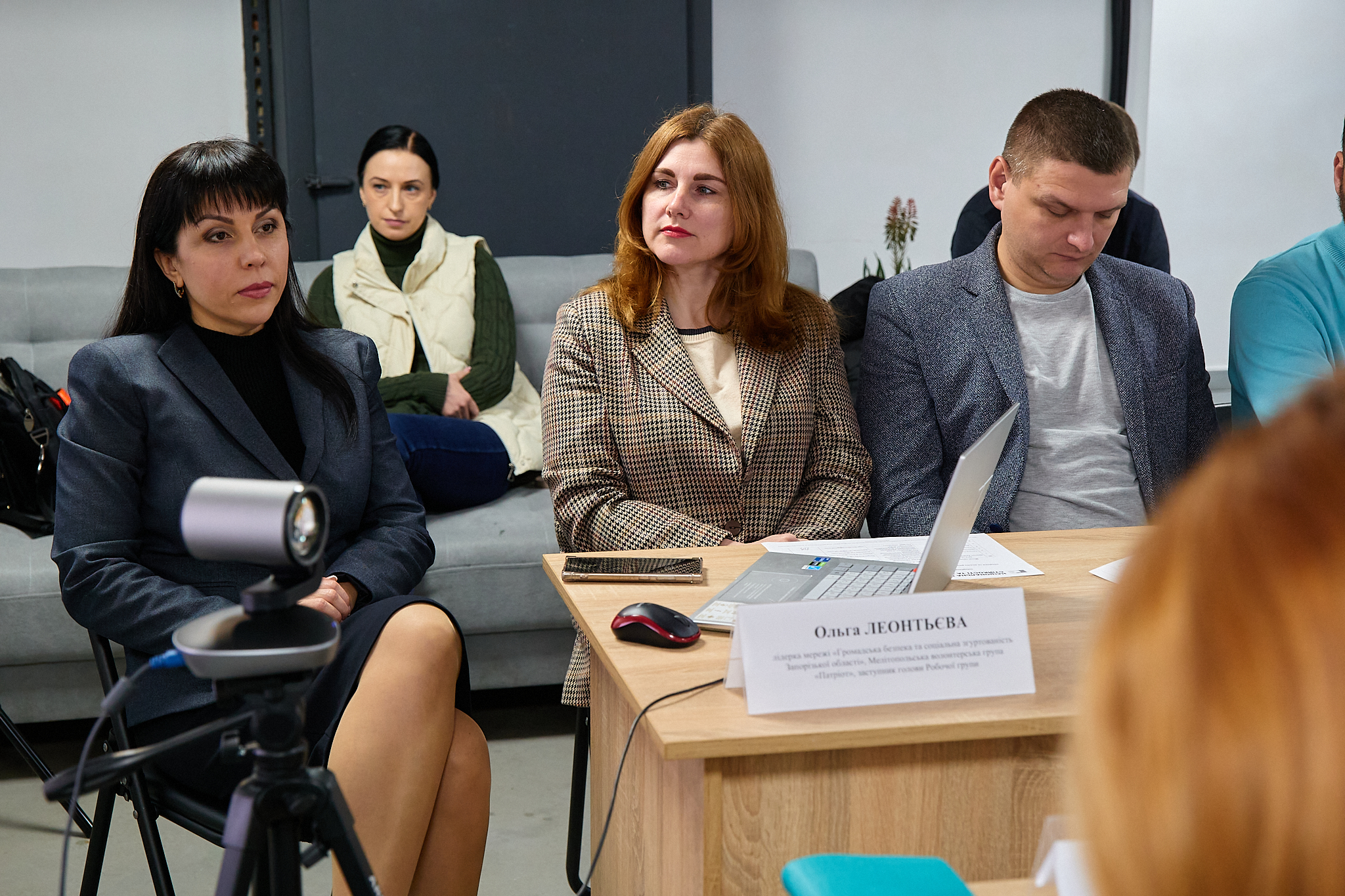Zaporizhzhia hosted a public discussion "Zaporizhzhia in the Time of War: Experience of Cooperation and Risks to Resilience and Cohesion" organized by the National Platform for Resilience and Cohesion. The participants of the event focused on the key challenges facing the region under martial law, discussed the state of interaction between the authorities and the community, and presented the results of a study of risks to social resilience.

Deputy Head of Zaporizhzhia Oblast State Administration Yevhen Myronenko emphasized that the Working Group on Public Safety and Social Cohesion, which was established almost two years ago, continues to work effectively. As an example, he cited the opening last month of the Security Center in the Matviyivka territorial community, which united all key security services.
In his turn, co-founder of the National Platform Volodymyr Lupatsiy presented the results of an expert survey that covered Zaporizhzhia and four other frontline oblasts. The study was conducted in five dimensions that were adapted for expert analysis in accordance with international methodology: social cohesion, human security, life support infrastructure, continuity of governance and citizen engagement, and information resilience.
More than 100 experts took part in the survey, assessing the impact and likelihood of 60 potential risks divided into 19 categories.
In Zaporizhzhia region, 26 risks were found in the "red zone" - an indicator that is slightly lower than the regional average (34). The top five most critical risks include an increase in the number of people in difficult life circumstances, the threat of prolonged blackout, disruption of heat supply, loss of mobile communications, and insufficient preparedness of civil protection infrastructure.
As noted during the discussion, each of the five oblasts studied is characterized by a deep distrust of the central government. In Zaporizhzhia oblast, tensions between regional and national civic identities were also recorded.

Volodymyr Lupatsiy emphasized the need to create regional risk registers and introduce continuous threat monitoring, which will allow for a prompt response to changes in the security environment.
The second part of the event included a discussion of public participation tools.
Tetyana Zhavzharova, coordinator of the Zaporizhzhia Recovery Council and head of the Ecosense NGO, noted that the level of civic engagement in the region is declining, and the available participation tools are not always used effectively. To increase the capacity of communities, including young organizations, an electronic manual and a brochure with practical advice were prepared, and thematic trainings were held. Particular attention was paid to joint work on the development strategy of the Kushugum community, where energy and civilian security are priorities.
The importance of dialogue as the main tool of democracy was emphasized by Olga Leontieva, head of the Melitopol Patriot Volunteer Group. She spoke about the activities of a network of working groups on public security that work to train communities to use democratic mechanisms of participation, which will be extremely important during the reintegration of the de-occupied territories.

Veronika Shostak, Head of the Youth Department of Zaporizhzhia City Council, spoke about the involvement of young people in decision-making processes. She emphasized that more than 70% of young people in the city plan to leave, so it is extremely important to create opportunities for them to participate.
In 2024, the Youth Council was relaunched, with advocacy training as one of its main areas of work. In addition, the city is implementing the Youth of Zaporizhzhia program, as well as preparing internship and employment programs for young people.
Dmytro Arabadzhiyev, Regional Coordinator of the National Platform, noted that researching risks and public discussion of them is a manifestation of cohesion.
According to him, now more than ever it is time to implement a full-fledged risk management system at the national level.
During the event, participants suggested that the study be extended to other frontline regions, including Sumy and Dnipro.
The discussion was summarized by the co-founder of the National Platform, political scientist Oleh Saakyan. He noted that Zaporizhzhia oblast is already implementing risk management, which has applied potential for other oblasts. The biggest challenge today, he said, is the need to formulate long-term strategies that can ensure the effective functioning of the state even in the face of uncertainty.
The National Platform is implemented by the UCIPR and UHHRU within the framework of the project “Ensuring Ukraine's Resilience in the Context of Increasing Risks and Consequences of War” with the financial support of the European Union.
You can watch the broadcast of the event here.
